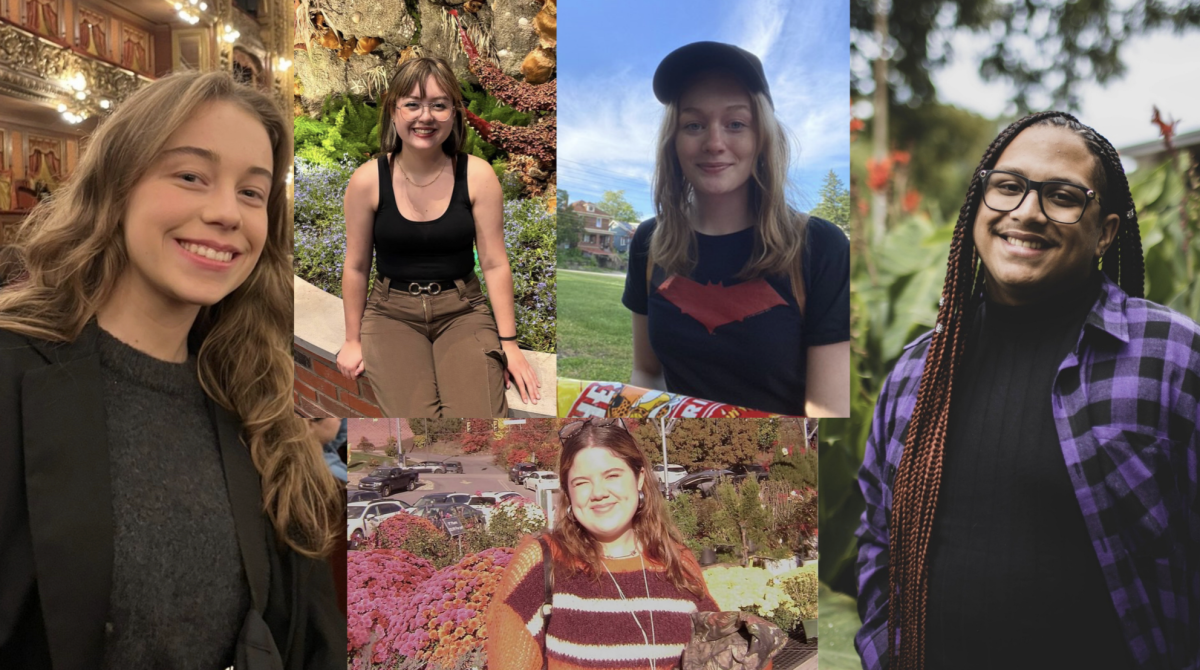For most students at Chatham University, it is their first time voting in a presidential election. Those who are able to vote have exercised this right by filling out mail-in ballots, creating an Election Day plan and speaking with their peers about who is on the ballot.
Many students view voting as their opportunity to make a difference in their communities and in the country. Even international students who are not eligible to vote in this election are finding ways to advocate for the issues they believe in.
“I think [voting] is important because if there is something you don’t like with the government or your institutions you can try and change it,” said Jenna Fetherolf ‘26, an interior architecture major from West Mifflin, Pennsylvania. “I think that once you do vote, you’re going to find a community of people who think like you and may have different opinions.”
While being interviewed, Fetherolf was sitting next to her friend Karen Lawson ‘26, an interior architecture major from the Ivory Coast. Lawson also stressed that voting can make an impact.
Dom Randall ‘27 is a history and political science major. They recall learning from a civics teacher in high school that voting is a privilege, which many people do not have.
“I believe that voting is one of the most important things to do,” Randall said. “We are the ones that are slowly inheriting the world, and so we should make our voice known.”
Randall recommends students become educated on who is on the ballot through Ballotpedia.org, especially when it comes to local elections.
“There are a lot of things on the ballot that pertain to us,” Randall said. “Get out and let your voice be known this Election Day.”
Morgan Rapsky ‘25 is from Johnstown, Pennsylvania, and a double major in policy studies and criminology.
“I feel like there are a lot of reasons that you should be exercising your right to vote,” Rapsky said. “A lot of protections are on the line.”
Rapsky said she is passionate about the LGBT+ community and marginalized communities in this country.
“I feel like I need to vote for a candidate who’s going to protect their rights,” Rapsky said. “You’re voting for things that are going to affect your daily life and future.”
Rapsky encourages first-time voters to be proud of themselves for actively engaging in democracy, having their voice heard and also voting for those who might not be able to vote for themselves.
Voters like Fetherolf, Randall and Rapsky use their vote to advocate for those like the international student population at Chatham. Though international students are unable to vote, this does not stop them from using a powerful tool that cannot be taken away: their voices.
Sophia Canteroll ‘27 is a transfer student and art major who moved to Pittsburgh from Mexico about a year ago with her family. As a migrant from Mexico, Canteroll is concerned about comments made by certain candidates.
“It will be scary to have a president that doesn’t like people like me or my family,” Canteroll said.
Canteroll said she speaks with her peers who can vote in this election about what it’s like being a minority in the United States.
“Although we cannot vote, we’re a big part of this country,” Canteroll added. “There are a lot of people that can’t vote and are still part of this country, and I feel like we need to speak for them with the elections.”
Basmala Arefelsayed ‘26 is originally from Egypt and moved to the United States in high school to play squash.
“I know that voting in the United States is completely different from Egypt,” Arefelsayed said. “I think that the main thing for U.S. citizens is that they have a right to decide what the future would look like.”
The next president can affect international relations, cultural exchange and international students. Though Arefelsayed is not able to vote, she still has conversations with her peers about registering and creating a voting plan.
“There are people on campus asking you to vote so I just told them, ‘I’m sorry, I can’t vote,’ but I go tell other people if there are people around, so [if] you are not registered, make sure to do that,” Arefelsayed said.
Martina Schmitt ‘28 and Isabela Campos ‘28 are both international students who came to the United States in August, just one week before classes began. Schmitt is an interior architecture major from the south of Brazil, and Campos is from El Salvador here studying international business. They both are unable to vote but know and acknowledge the power of voting.
According to Campos, voting is important because it is a way for U.S. citizens to express their beliefs and to show their community what they think is the best for the country.
Voting “impacts their future and a lot of things are on the ballot, especially in this election,” Schmitt said. “Absolutely vote if you can.”



Karinne Barrett • Nov 4, 2024 at 12:24 pm
This piece is amazing and encompasses the heart behind many voters in this generation. Amazing!!